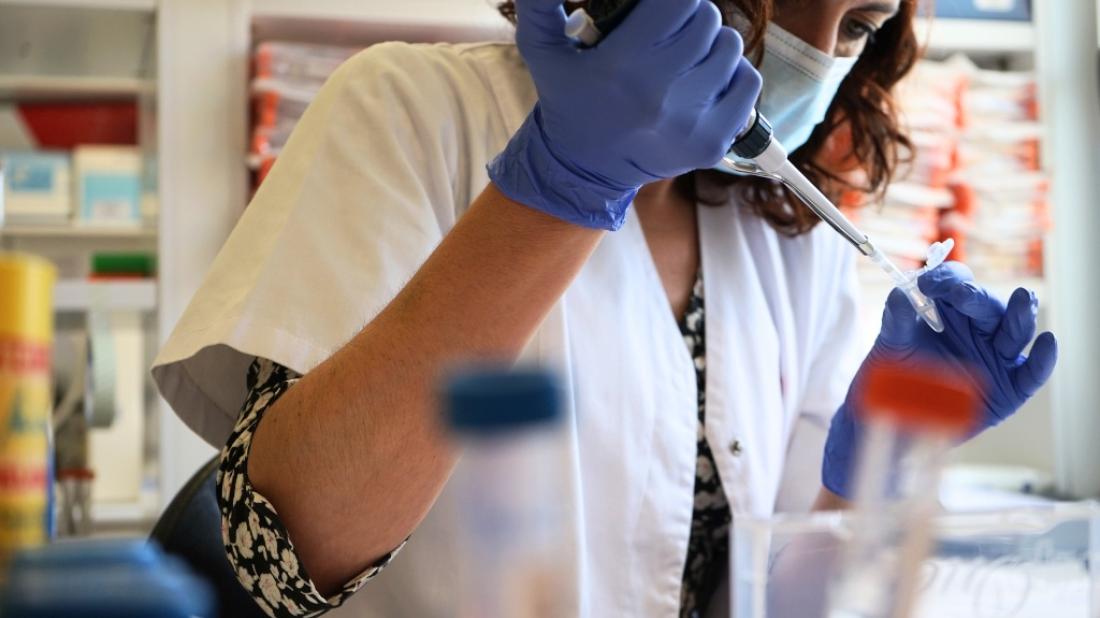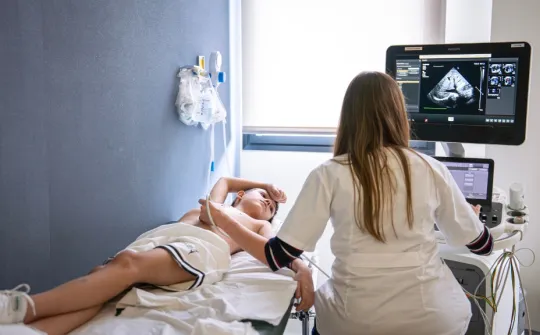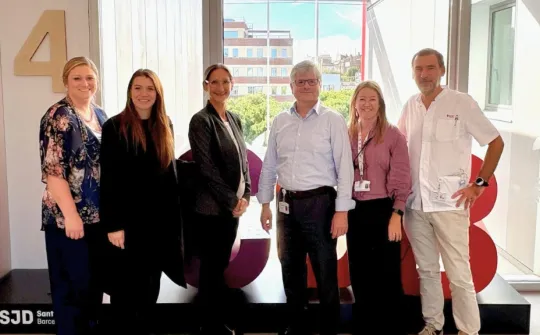SJD Barcelona Children's Hospital participates in a project that facilitates access to personalised medicine

Together with 11 hospital and research centres, medical-scientific and patient associations, it has developed a state-wide programme that grants access to tumour genomic and molecular studies for all children with cancer in Spain.
SJD Barcelona Children's Hospital – SJD Research Institute is participating in a project that aims to facilitate access to precision medicine for all children and adolescents with cancer in Spain, regardless of where they live. Personalised medicine enables clinicians to determine more precisely what type of tumour each child has, identify specific alterations that enable an improved diagnosis; offer targeted therapies based on the genetic alterations identified; stratify patients according to their risk and detect syndromes with predisposition for the development of tumours, all to improve survival and reduce sequelae.
Together with 11 other hospital and research centres, medical-scientific and patient associations, SJD Barcelona Children's Hospital is participating in a state-wide programme of genomic and molecular studies in childhood tumours to implement personalised medicine as a standard part of diagnosis and treatment. The project, called SEHOP-PENCIL (Personalised mEdiciNe for Cancer in chILdren in Spain), has been developed by the Spanish Society of Pediatric Hematology and Oncology (SEHOP), and is coordinated by Hospital de la Vall d'Hebron and funded with 2 million euros by the Carlos III Health Institute, with European funds from the Recovery, Transformation and Resilience Plan.
The SEHOP–PENCIL project is based on previous work that analysed in which centres and in which situations molecular, epigenetic and tumour sequencing studies are carried out, what technology is used and the clinical applicability of the results in terms of access to targeted treatments. The study revealed differences in access to personalised medicine studies that SEHOP-PENCIL now aims to overcome by creating a precision medicine platform and a state-wide coordination strategy.
The project will involve more than 500 patients with pediatric tumours, especially high-risk ones, treated in any hospital in Spain. These tumours will be analysed after diagnosis or relapse using different techniques, in order to establish their molecular biology and identify specific alterations that enable clinicians to prescribe the most effective and least aggressive treatment. These analyses mean a more precise diagnosis can be made and patients can be stratified according to their clinical risk. This is key information for reducing the strength of treatment in those patients with a better prognosis, and therefore also reducing toxicity and long-term sequelae.
The initiative will also study syndromes with a hereditary predisposition to cancer, which are found in up to 10% of childhood cancers and which, once detected, open the door to early detection programmes in patients and their families.
Finally, the project will also focus on developing new technologies, such as liquid biopsy, the analysis of blood samples that may contain cancer cells or genetic material that comes from the tumour. This type of biopsy makes it possible to evaluate tumour heterogeneity and monitor response to treatments more easily, less invasively, and more efficiently than a regular tissue biopsy.
SJD Barcelona Children's Hospital, a leading centre for methylation profile analysis
To facilitate access to sequencing techniques and precision medicine for all children with cancer, coordinated networks of experts will be established between national pediatric oncology centres, with 10 hubs or genomic centres that will have the capacity to sequence samples arriving from other hospitals. "SJD Barcelona Children's Hospital will act as a coordinating centre and national centre of reference for the analysis of tumour DNA methylation profiles or methylome, although it will also carry out tumour sequencing and liquid biopsy for those centres that require it," explains Dr Cinzia Lavarino, head of the Molecular Diagnostic Laboratory at the Pediatric Cancer Center Barcelona-SJD and principal investigator of the SEHOP-PENCIL project at SJD Barcelona Children's Hospital.
SEHOP-PENCIL's ultimate goal is for precision medicine to be incorporated into the portfolio of services of any hospital and for the usefulness and effectiveness of all these studies to be analysed. This will bring Spain on a par with Europe's leading countries in pediatric oncology, which have already incorporated these studies into the first line of treatment. Although the project will initially involve only those patients with high-risk tumours, once implemented it is expected to be extended to all pediatric cancer patients.
SEHOP-PENCIL is a highly collaborative project involving a network of all of Spain's childhood cancer hospitals and research centres. In addition to SJD Barcelona Children's Hospital - SJD Research Institute, the project also benefits from the participation of Vall d'Hebron University Hospital, the La Paz University Hospital Research Institute, the Spanish Society of Pediatric Hematology and Oncology, the La Fe Health Research Institute - La Fe University and Polytechnic Hospital, the Seville Biomedicine Institute - Virgen del Rocío University Hospital, the Research Institute for Rare Diseases-Carlos III Health Institute, the CRIS Cancer Research Foundation, the Niño Jesús University Children's Hospital Research Foundation, the University of Navarra Clinic, the Biocruces Bizkaia Health Research Institute and the Castilla la Mancha Health Service.



